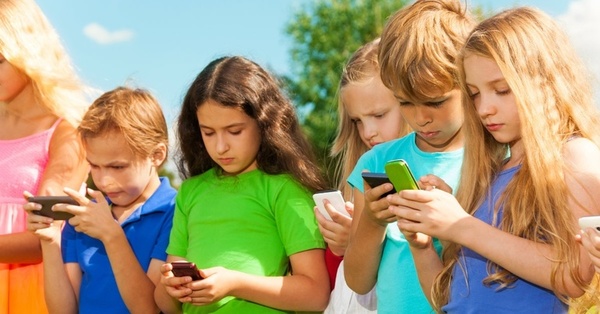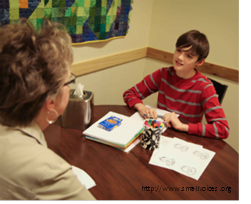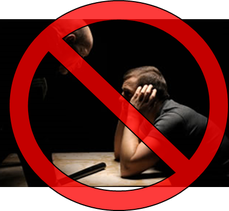Posted by Lauren B on October 11, 2016
If you’ve watched the news recently or sat in a large public area for any amount of time, there’s no doubt you’ve noticed nearly every kid wandering around with their nose in their phones talking about catching Weedles, Squirtles, Pidgeys, and a slew of other creatures that you can’t hear or see in real life. For those that don’t know, Pokemon Go is a new app created by Nintendo that was released earlier this July and has taken this nation by storm. It allows "gamers" to catch virtual characters on their cell phone, using real-life maps and locations. I gave it a try the first week and wandered around with the other hopeful Pokemon trainers attempting to catch every Drowzee and Evee I passed, with quite the beginner’s luck! Being a 90’s kid, I have to admit it was a lot of fun running around, catching the Pokemon I had always dreamed of capturing as a kid; that along with the fact it created a talking point at work and nearly everywhere else I went. There’s been a big debate of whether this app has been healthy for society because it brings families and friends together and encourages us to get active, or if it’s detrimental to our society as we are getting further engulfed in a virtual world, creating more isolation than community.
Regardless of which side of the debate you fall on, the more immediate concern is if and how these young and hopeful Pokemon trainers are being monitored while playing the game. I didn’t think much of it until I found my first “Lure Module” which is basically where someone creates a hotspot that attracts all the Pokemon…and naturally all the Pokemon trainers, young and old. As I sat there joking and laughing, I noticed kids walking around with no regard to the world around them as they were attempting to catch each new Pokemon that popped up on their phone screen. The first question I asked myself was, “Where are their parents?” and then thought to myself “We’re going to see one of these kids at Care House”
At Care House we see kids daily who have been victims of abuse, physical and sexual, and it is not uncommon for us to hear the situation where a kid or teenager was innocently using a social media app, was engaged in a conversation that seemed innocent enough, and the situation spirals downhill from there. With this new phenomenon, or as I call it, epidemic spreading, parents need to be informed on how to keep their kids safe on the internet with all the new social media apps, including Pokemon Go. This app in particular is not unsafe in and of itself, but it creates more opportunities for children to be alone, unsupervised and vulnerable to predators and perpetrators. There have already been several articles put out by a number of law enforcement agencies and news stations voicing their concerns about predators using these Pokestops to target victims and lure them to an unsuspecting place.
In New York a study was conducted that found the following:
I'm not saying this to scare you, but rather to tell you, as parents, it’s important to monitor your kids' online activity and supervise their social media interactions.
Here are three tips to help keep your kids safe on social media:
1. EDUCATE YOURSELF
Take the time to learn and know about the apps and "games" your kids are using on their phones and tablets. The list of social media apps is ever increasing and at times can be hard to keep up with, but do the research to familiarize yourself with how these apps work, along with the risks that come with each. Some of the common ones we see at Care House are:
2. TALK TO YOUR KIDS ABOUT THE DANGERS OF SOCIAL MEDIA
In working with kids, it is apparent that most of them have little to no idea how dangerous social media can be. They don't comprehend how available their personal information is and how permanent it can become. They are unaware that other people can see their online activity and how this can impact their future. As parents, it's helpful to discuss real-life situations and consequences that have happened as a result of kids being unmonitored and/or not safety-conscious on the web. These types of stories can often be found on the news and can become a great opportunity for parents to spark a conversation with their kids.
It's also important to set rules and guidelines for your child on social media, whether this be limiting the amount of time they are on the computer or, depending on age, not allowing kids to have their cell phone, tablets, or computers in their room. These rules should be consistent, but not too rigid, still allowing kids to feel in control of making good decisions they can be proud to share with you.
3. TRUST, BUT VERIFY
Talking to most parents a common response is "Yeah, but my kid would never do that." or "That would never happen to my kid." Both of which may be very true statements, but how do you really know what is going on if you're not monitoring your child on the internet or on their cell phone? It's all too often that parents underestimate their child's curiosity and/or naivety because "they're a good kid."
This isn't to say parents should doubt or question everything their child does or tells them, or to become a hover-parent, monitoring every second of their child's internet or cell phone usage. Rather this is to encourage parents to have open eyes and open minds, keep lines of communication open between them and their child, and to be the parent in the relationship, protecting their child from potential harm.
Regardless of which side of the debate you fall on, the more immediate concern is if and how these young and hopeful Pokemon trainers are being monitored while playing the game. I didn’t think much of it until I found my first “Lure Module” which is basically where someone creates a hotspot that attracts all the Pokemon…and naturally all the Pokemon trainers, young and old. As I sat there joking and laughing, I noticed kids walking around with no regard to the world around them as they were attempting to catch each new Pokemon that popped up on their phone screen. The first question I asked myself was, “Where are their parents?” and then thought to myself “We’re going to see one of these kids at Care House”
At Care House we see kids daily who have been victims of abuse, physical and sexual, and it is not uncommon for us to hear the situation where a kid or teenager was innocently using a social media app, was engaged in a conversation that seemed innocent enough, and the situation spirals downhill from there. With this new phenomenon, or as I call it, epidemic spreading, parents need to be informed on how to keep their kids safe on the internet with all the new social media apps, including Pokemon Go. This app in particular is not unsafe in and of itself, but it creates more opportunities for children to be alone, unsupervised and vulnerable to predators and perpetrators. There have already been several articles put out by a number of law enforcement agencies and news stations voicing their concerns about predators using these Pokestops to target victims and lure them to an unsuspecting place.
In New York a study was conducted that found the following:
- Pokemon materialized in front of Level 2 or Level 3 sex offenders' homes 57% of the time
- Pokestops or Gyms were located within half-a-block of convicted pedophiles' residences 59% of the time
- Pokemon-related game times appeared near a high-levi sex offender's home 73% of the time
I'm not saying this to scare you, but rather to tell you, as parents, it’s important to monitor your kids' online activity and supervise their social media interactions.
Here are three tips to help keep your kids safe on social media:
1. EDUCATE YOURSELF
Take the time to learn and know about the apps and "games" your kids are using on their phones and tablets. The list of social media apps is ever increasing and at times can be hard to keep up with, but do the research to familiarize yourself with how these apps work, along with the risks that come with each. Some of the common ones we see at Care House are:
- Snapchat
- Kik
- YouTube
- Musical.ly
2. TALK TO YOUR KIDS ABOUT THE DANGERS OF SOCIAL MEDIA
In working with kids, it is apparent that most of them have little to no idea how dangerous social media can be. They don't comprehend how available their personal information is and how permanent it can become. They are unaware that other people can see their online activity and how this can impact their future. As parents, it's helpful to discuss real-life situations and consequences that have happened as a result of kids being unmonitored and/or not safety-conscious on the web. These types of stories can often be found on the news and can become a great opportunity for parents to spark a conversation with their kids.
It's also important to set rules and guidelines for your child on social media, whether this be limiting the amount of time they are on the computer or, depending on age, not allowing kids to have their cell phone, tablets, or computers in their room. These rules should be consistent, but not too rigid, still allowing kids to feel in control of making good decisions they can be proud to share with you.
3. TRUST, BUT VERIFY
Talking to most parents a common response is "Yeah, but my kid would never do that." or "That would never happen to my kid." Both of which may be very true statements, but how do you really know what is going on if you're not monitoring your child on the internet or on their cell phone? It's all too often that parents underestimate their child's curiosity and/or naivety because "they're a good kid."
This isn't to say parents should doubt or question everything their child does or tells them, or to become a hover-parent, monitoring every second of their child's internet or cell phone usage. Rather this is to encourage parents to have open eyes and open minds, keep lines of communication open between them and their child, and to be the parent in the relationship, protecting their child from potential harm.




 RSS Feed
RSS Feed
